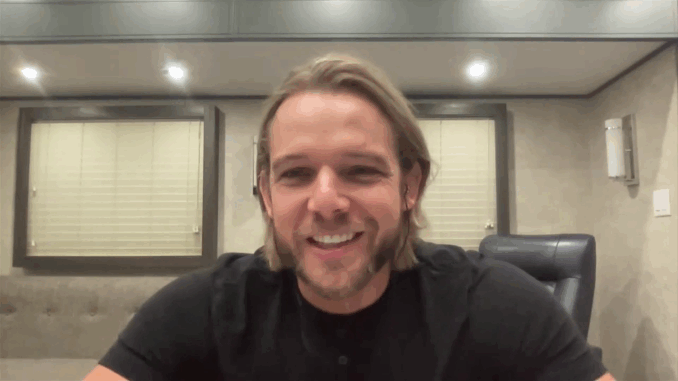
In a television landscape often crowded with alpha males and emotionless action stars, Max Thieriot’s portrayal of Bode Donovan in Fire Country offers something refreshing: a male lead who is tough yet tender, proud yet vulnerable. By embracing emotional complexity, Thieriot is helping shift the narrative of masculinity on screen—and audiences are noticing.
In this article, we dive into how Max Thieriot is dismantling outdated stereotypes and presenting a more honest, nuanced model of manhood through Fire Country.
Challenging the “Strong, Silent” Trope
Traditional depictions of men in action-driven series often emphasize silence, stoicism, and aggression. Fire Country could have followed this blueprint—after all, it’s a series about wildfires, prison, and life-or-death stakes. But Thieriot had a different vision.
As Bode Donovan, he cries. He apologizes. He questions himself. He shows deep affection for his parents, fears rejection, and wrestles with unresolved grief over his sister’s death. And through it all, he remains undeniably strong.
Thieriot’s performance sends a bold message: strength and sensitivity are not mutually exclusive.
Bode Donovan Is Not a Hero by Default
In most dramas, the male lead is automatically assumed to be the “good guy.” Not so with Bode. Thieriot constructs him as flawed from the start—a recovering addict, an ex-con, and a man whose past decisions have hurt others.
And yet, we root for him. Why? Because his journey isn’t about perfection—it’s about effort. Thieriot crafts a character who fights to do better, day by day, even when no one believes in him.
This redefining of heroism—based on accountability rather than invincibility—creates space for new conversations about what it means to “man up.”
Real Emotion, Real Impact

Max Thieriot doesn’t hold back when it comes to emotional scenes. Whether it’s a moment of heartbreak with Gabriela or a tense confrontation with his father Vince, he dives into emotional honesty. He doesn’t flinch from tears. He doesn’t mask pain with swagger.
These choices give permission to male viewers to experience emotion rather than suppress it. And in a society that often punishes vulnerability in men, that’s revolutionary.
On-Screen Masculinity as a Role Model
What Max Thieriot is building with Fire Country is not just a compelling drama—it’s a new archetype. A man who listens. A man who changes. A man who seeks forgiveness. A man who can show weakness without losing dignity.
This isn’t just good writing—it’s social impact. Teen boys and young men watching the show now have a powerful alternative to toxic masculinity. They see a lead character who asks for help, respects boundaries, and chooses empathy.
That influence may outlast the series itself.
Behind the Screen: Thieriot’s Intentional Choices
Max Thieriot’s redefinition of masculinity isn’t accidental. As co-creator of Fire Country, he intentionally built Bode’s emotional depth into the DNA of the series. He understood that real masculinity includes pain, softness, and self-reflection—and he fought to show it.
From the way Bode handles his grief to his willingness to mentor younger inmates, Thieriot continually presents manhood as multifaceted. And because he embodies these values on and off the screen, the message resonates even more.
Conclusion: Max Thieriot’s Legacy Is Bigger Than Fire
By presenting a raw, emotional, imperfect hero, Max Thieriot is changing how masculinity is portrayed on television. In doing so, he’s not just entertaining—he’s educating, inspiring, and healing.
Fire Country’s flames may be fictional, but the fire Thieriot has lit in our collective understanding of manhood is very real—and it’s blazing a trail for others to follow.
